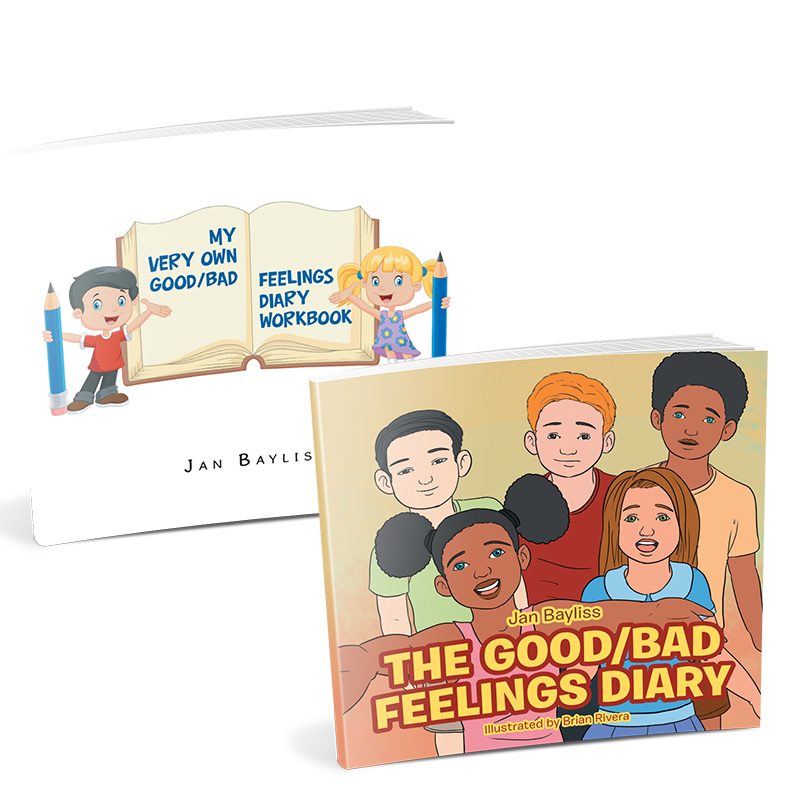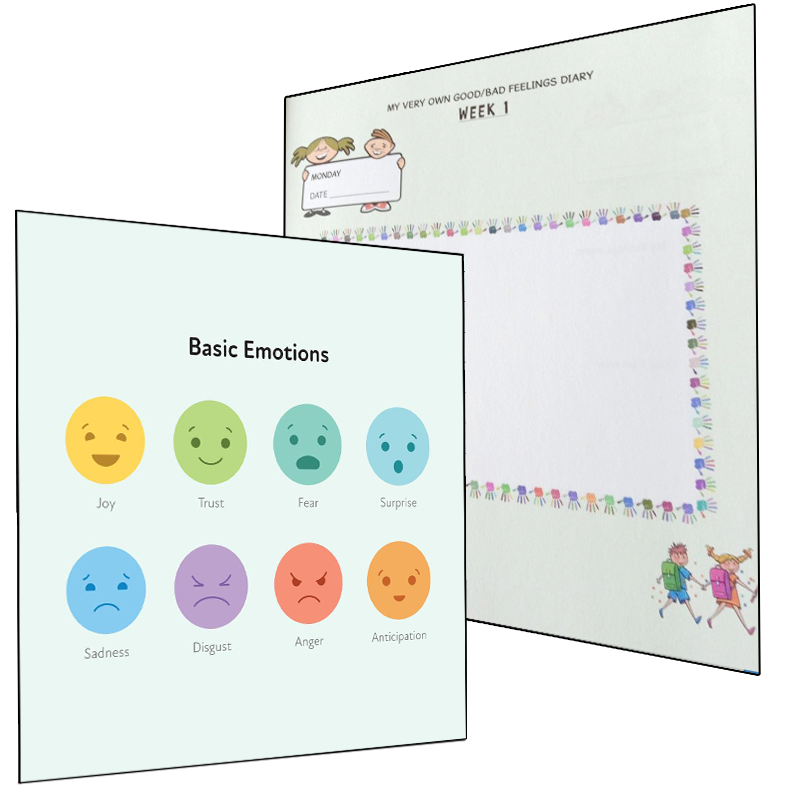
About the Book
The Good/Bad Feelings Diary read to a child from an early age allows parents to also receive a healthy message about the benefits of sharing and talking about feelings, whatever they may be.
The book takes the reader on a child’s journey through feelings, good and bad, and how the child responds to the feeling at a certain time. The child displays certain behaviours given the feeling they are having at the time, recognizing that ‘bad’ feelings can sometimes have a consequence if the child becomes overwhelmed with the emotion.
The significant person or people in the child’s life who are able to listen, comfort and talk about things not being right and acknowledge that they themselves have strong feelings and emotions too, can help the child to self- regulate and know that the feeling was normal and assist them with the tools to manage these emotions differently.
My Very Own Good/Bad Feelings Diary Workbook is a companion to The Good/Bad Feelings Diary Storybook. This workbook allows children to freely explore their own feelings on a daily basis, culminating in an end of week opportunity to draw or write about their feelings for the week.
Both of these books are available for purchase - please contact for more information and orders.

About the Author
Jan has a Masters Degree in Counselling and is a Child Consultant working with Family Dispute Resolution Practitioners who mediate with parents who are going through separation and divorce. Engaging in a child consult session allows their child/children to have a voice, which, in turn assists the process of mediation, working toward a more positive outcome for the whole family.
Jan has been counselling individuals, couples, families and children for the past 20 years and is a group facilitator educating people in all aspects of grief and loss, post separation issues, domestic violence and is a grief counsellor who understands the impact of trauma on people of any age. Jan is also a Supervisor of Counsellors.
Working with both parents individually, in couples counselling, and with families and children, Jan has found a common thread, which stems from an inability to understand the importance of any kind of feeling or emotion and being able to acknowledge and talk about it, especially in relation to parents sharing feelings with their children. The common statement tends to be “I don’t want my child to see me sad”. Parents themselves have often grown up in an environment where feelings were not talked about in their childhood.
Over many years, Jan has researched the benefits of parents having ‘difficult conversations’ with their children and pass on knowledge to the parents, with great success. Jan’s belief is the younger the child is able to understand any feelings they have are normal for what they are going through at any given time and know they can talk about their feelings, have them heard and understood by significant people in their lives, the better for their future handling of difficult situations, especially in their teenage years.